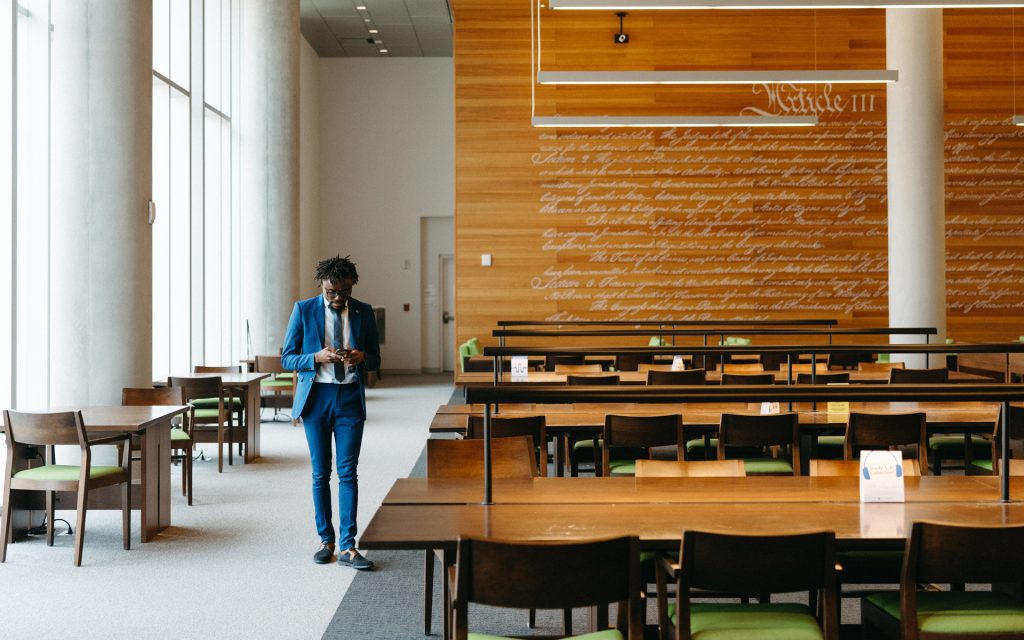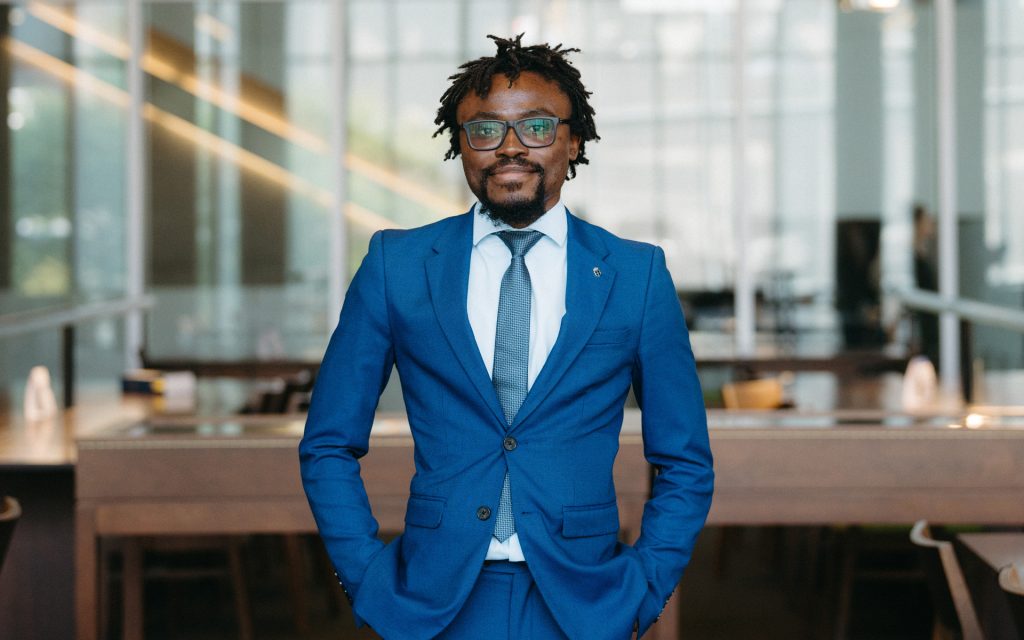
Sinésio Sambo ’25 LL.M. has been a practicing attorney and human rights activist since 2016 in Mozambique. The combination of private legal practice and corporate in-house counseling with human rights and/or sustainability pursuits are rare in his home country, but Sambo is spending a year in the U.S. earning a Master of Laws (LL.M.) at Syracuse University College of Law in an effort to help change that.
The Republic of Mozambique became independent in 1975 after four centuries of Portuguese rule. Located on the southeast coast of Africa, it is rich in natural resources and both biologically and culturally diverse, but it is also considered one of the poorest countries in the world, ranking 181 out of 189 countries on the Human Development Index. According to Sambo, the culture of Mozambique in relation to human rights and sustainability is, for the most part, a pursuit of local civil society organizations, international NGOs and multilateral agencies.
“I knew gaining multijurisdictional exposure in a richly developed legal system, while qualifying for the New York State Bar exam, would help me reach my goals. And, I was attracted to Syracuse Law for its innovative and student-centered approach to legal education and genuine concern about academic and bar success of foreign-trained attorneys.”
—Sinésio Sambo ’25 LL.M
“While awareness of human rights and sustainability has been increasing over the past few years, the fact of the matter is that there is a not so openly discussed perception that legal practitioners must choose between going into private practice or corporate in-house counseling or going down a more human rights and/or sustainability-related career path,” he explains. “In fact, based on experience, I think that business and human rights are still viewed as mutually exclusive by many fellow legal practitioners.”
According to Sambo, in lawsuits involving large corporations and disadvantaged rural communities, the former are commonly represented by well-established law firms and the latter by organizations that prioritize free legal aid. He suspects that is because well-established law firms and lawyers are not willing to take the risk of losing large corporate clients—and profit.
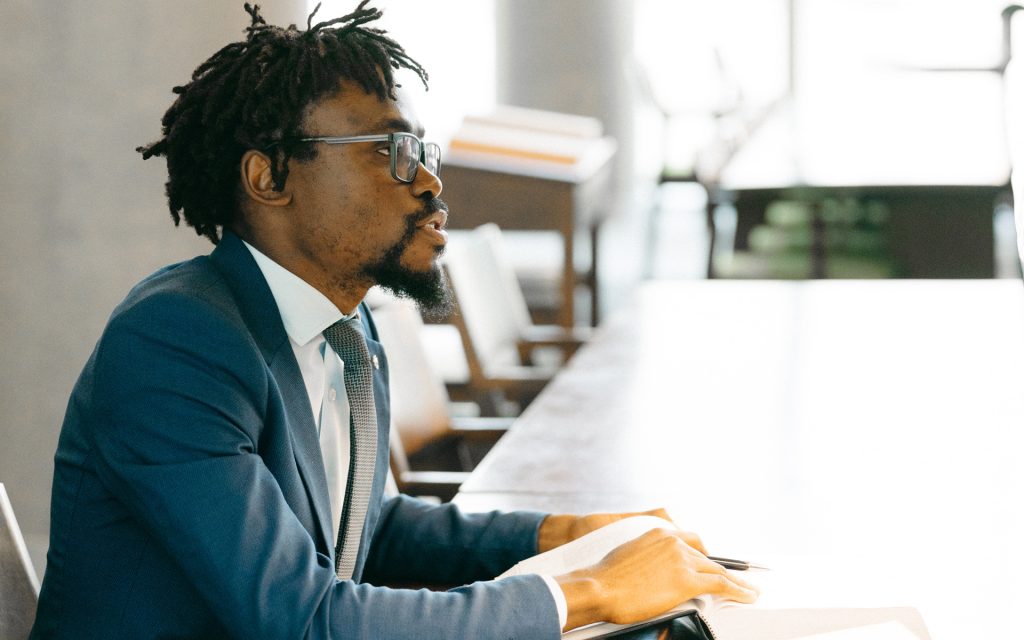
“Private practitioners seem to forget that our role should go far beyond representing clients. It entails upholding the rule of law even through publication statements against human rights violations,” he says.
From the earliest days in law, Sambo knew that getting an LL.M. would benefit his goals to pursue an international career and embark on global legal practice. While he has a law degree equivalent to an LL.B. from Eduardo Mondlane University in Mozambique and an LL.M. in human rights and democratization in Africa from the University of Pretoria in South Africa, Sambo wanted more. So, when he recently received a Fulbright grant, he headed to Syracuse Law to earn another LL.M.
“I knew gaining multijurisdictional exposure in a richly developed legal system, while qualifying for the New York State Bar exam, would help me reach my goals. And, I was attracted to Syracuse Law for its innovative and student-centered approach to legal education and genuine concern about academic and bar success of foreign-trained attorneys,” he explains.
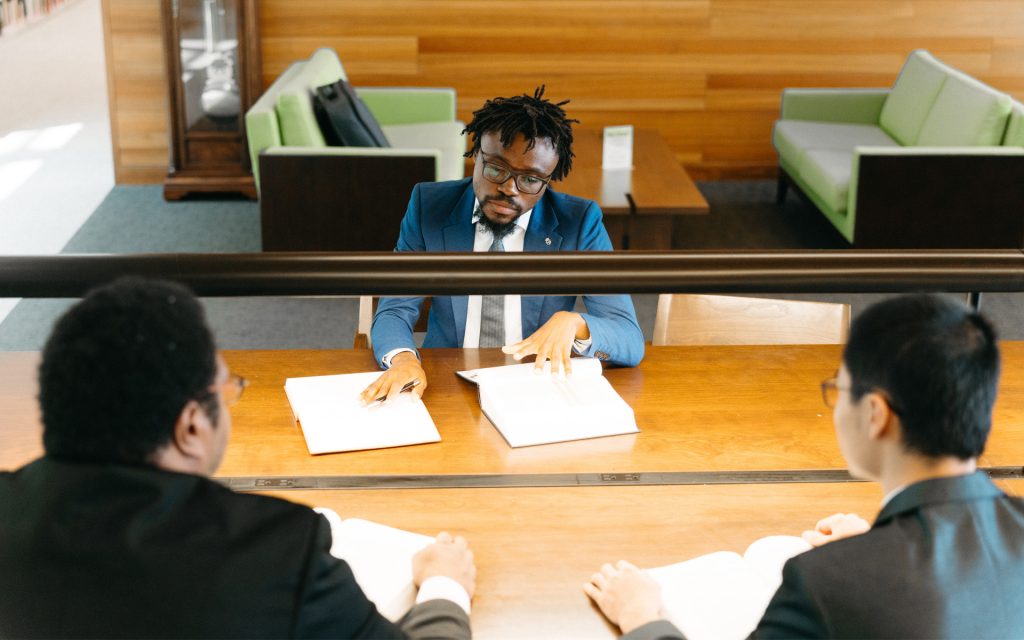
Since beginning the program, Sambo is pleased with the vast number of resources available to foreign-trained legal professionals in order for them to succeed academically and professionally wherever in the world they decide to practice. He notes the one-on-one mentoring, the free bar prep course and the state-of the art Dineen Hall, as well as the diversity of his cohort, which has afforded him multijurisdictional exposure and allowed him to gain insight and some understanding into how law works in unfamiliar jurisdictions. Sambo has been inspired by a number of others in his cohort, including Igor dos Santos L’25, a “brilliant” mentor from Brazil who is a student in Syracuse Law’s J.D. program.
“There are so many takeaways I will bring back from my experience here at Syracuse Law, particularly highlighting the problem-solving approach that U.S. law takes to today’s pressing concerns in the world and to the constitutional principles, such as separation of power.”
—Sinésio Sambo ’25 LL.M
While Sambo intends to gain some work experience in the U.S. after completing his LL.M. next year, he will eventually return home to Mozambique with the intention of making a contribution to the country’s further development.
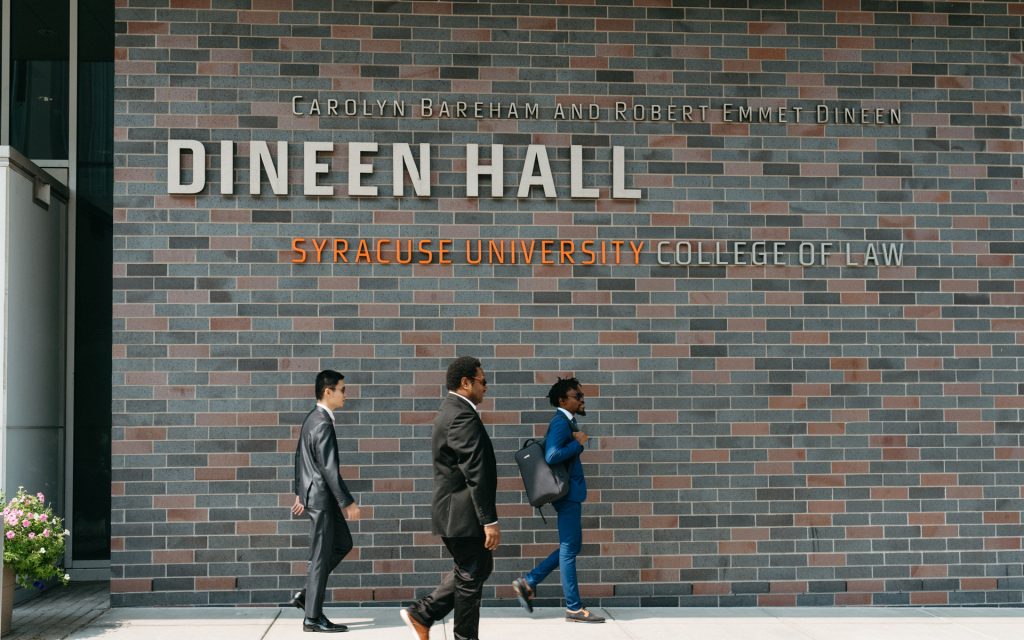
“There are so many takeaways I will bring back from my experience here at Syracuse Law, particularly highlighting the problem-solving approach that U.S. law takes to today’s pressing concerns in the world and to the constitutional principles, such as separation of power,” he says.
In the meantime, Sambo is committed to taking advantage of every learning opportunity he can before he completes his LL.M. in 2025. He says, “My experience at Syracuse Law is helping me focus on business-related legal disciplines in order to become an expert combining both business and human rights—and allowing me to be the change I want to see in the world.”
